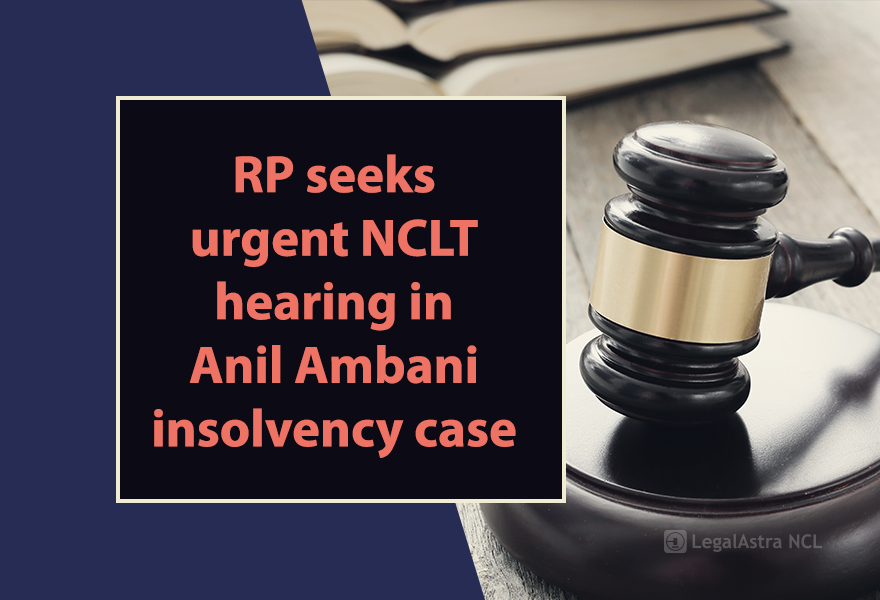The resolution professional (RP) in the Anil Ambani insolvency case has sought an urgent hearing at the National Company Law Tribunal (NCLT) on the grounds that it had been more than a year since he submitted his report on the merits of a lawsuit brought by State Bank of India for recovery of ₹1,200 crore loans from the industrialist.
Jitender Kothari, an RP appointed by NCLT to look into the claims of State Bank of India against Ambani, approached the tribunal on 23/06/2022, claiming that he had submitted his report on 31 May 2021 regarding his assessment of whether Ambani should undergo personal insolvency resolution process.


Track your NCLT / NCLAT cases or orders in your apple iOS / Google Android smartphones. Available for free trial period of 15 days.
He claimed that an urgent hearing was required in the matter otherwise timelines stipulated under the Insolvency and Bankruptcy Code (IBC) for resolving such disputes would be missed. State Bank of India has claimed that Anil Ambani personally guaranteed repayment of ₹1,200 crore of loans that the bank had granted to his company Reliance Communications. As per insolvency regulations, the RP’s role is to determine the authenticity of the claims of a creditor and provide a recommendation if insolvency proceedings should be started against the personal guarantor. NCLT is bound to adjudicate on the matter within 14 days of the RP submitting his report.
Anil ambani is among a large group of promoters against whom lawsuits have been brought by banks to recover loans backed by personal guarantees. The list includes Subhash Chandra of Zee, the Ruias of Essar, the Dhoots of Videocon, the Wadhawans of DHFL and Punj Lloyd founder Atul Punj.
The Supreme Court in May ruled that NCLT is the relevant authority to hear personal insolvency matters. Businessman Mahendra Kumar Jajodia had approached the NCLAT court challenging the authority of NCLT to hear personal insolvency cases and claimed that these should be dealt with by debt recovery tribunals instead.
